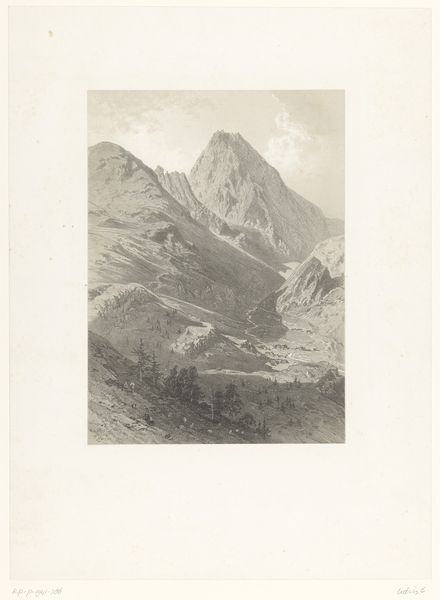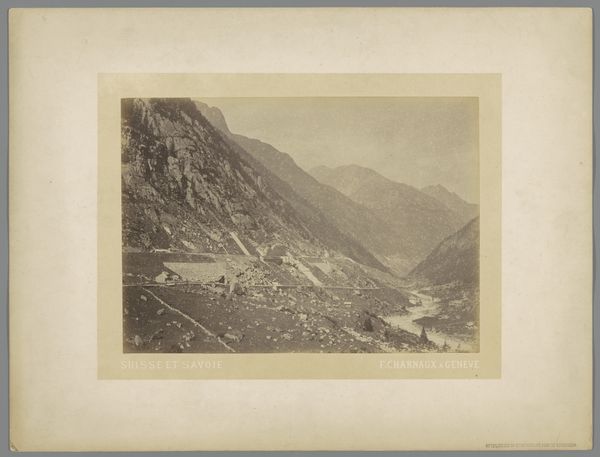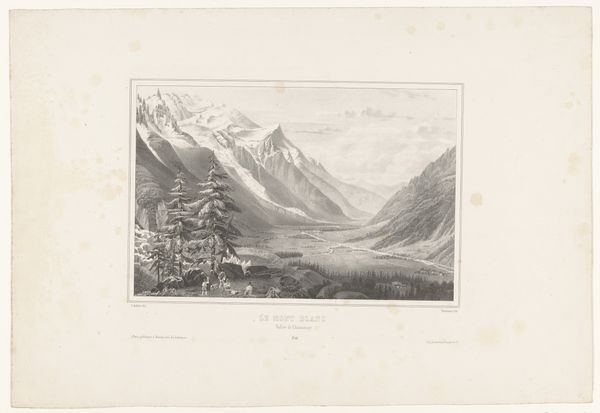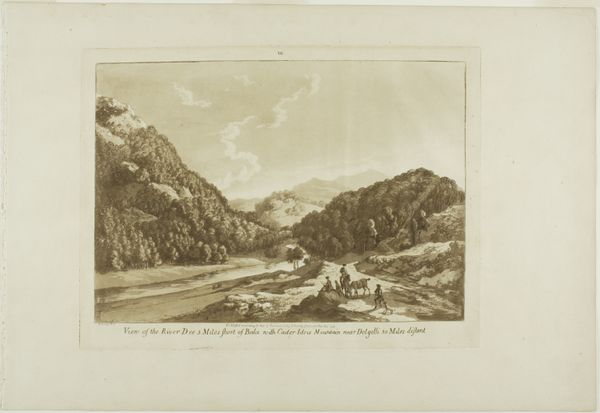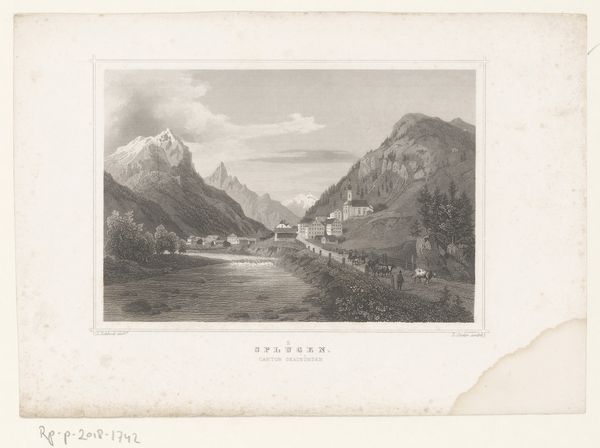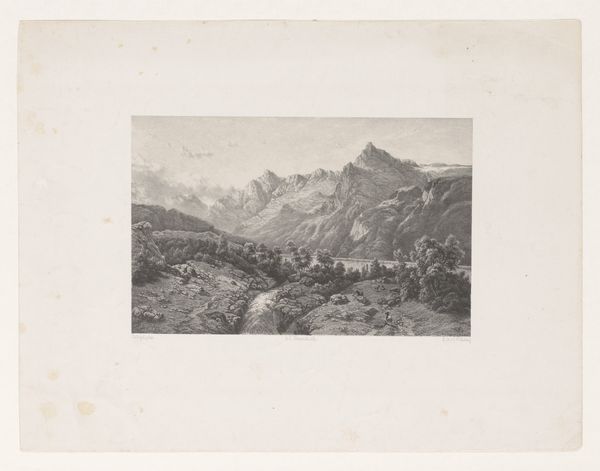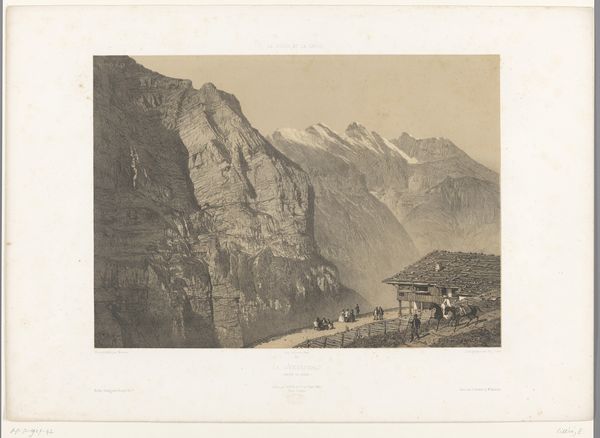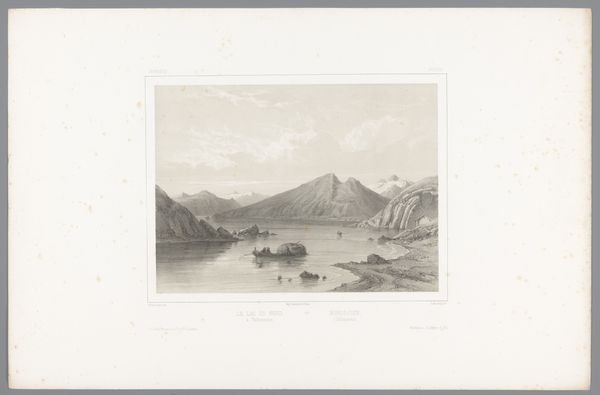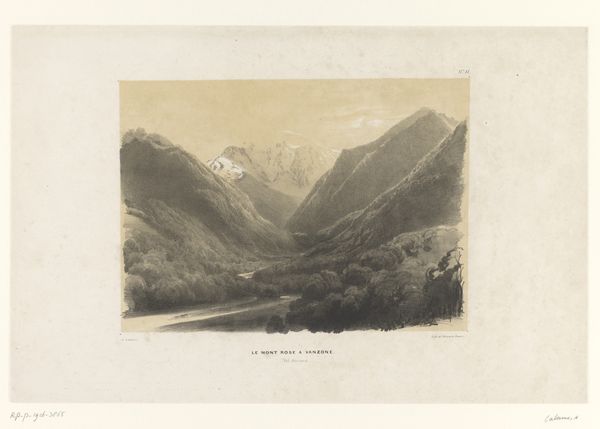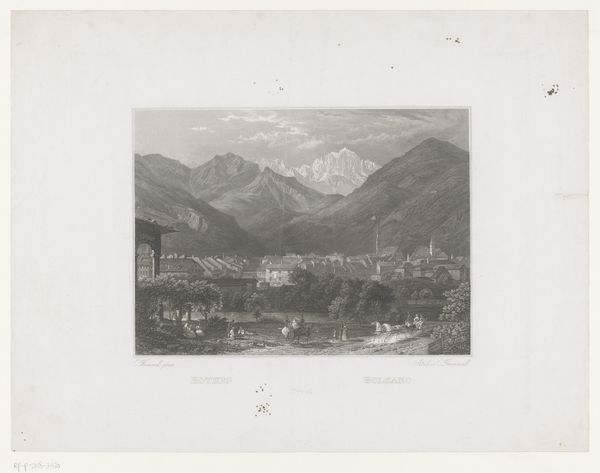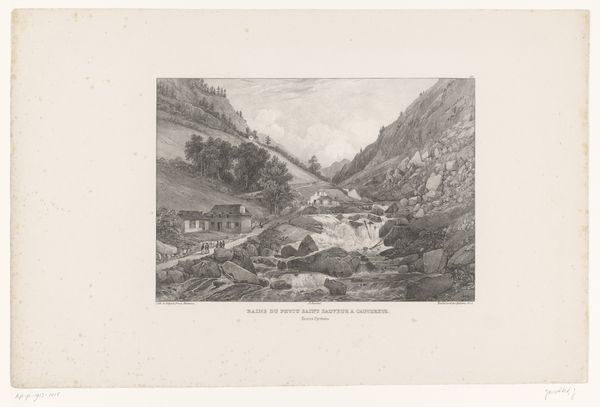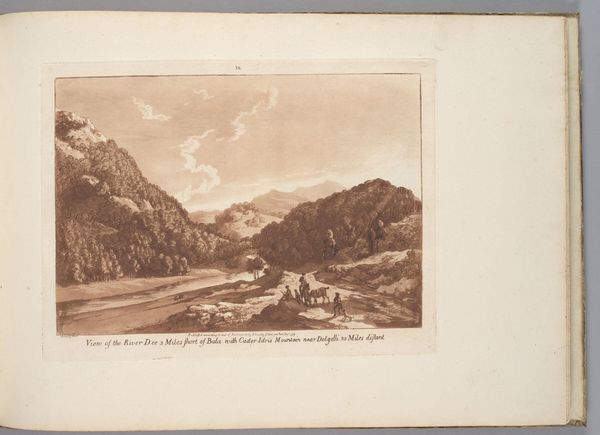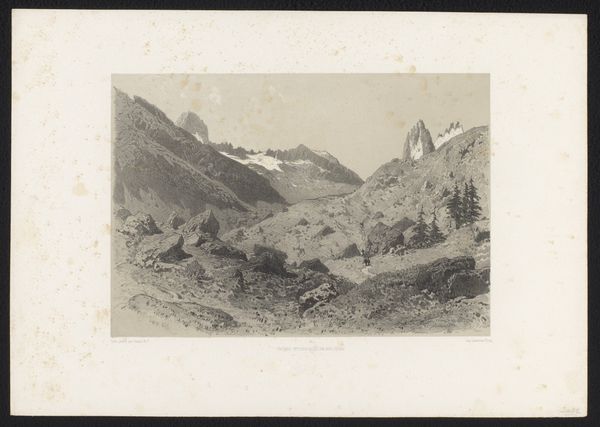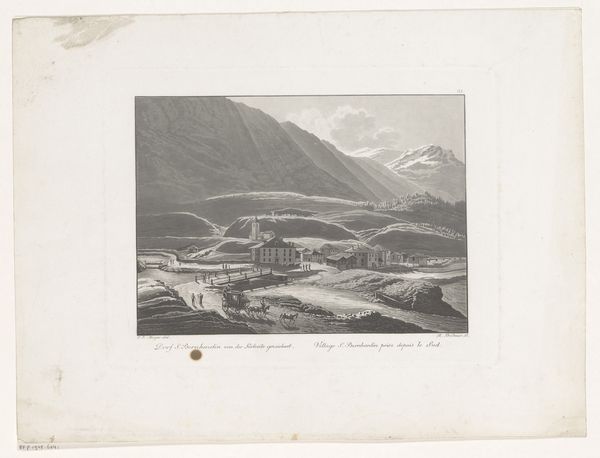
print, etching
# print
#
etching
#
landscape
#
realism
Dimensions: height 355 mm, width 478 mm
Copyright: Rijks Museum: Open Domain
Eugène Cicéri created this landscape on paper using lithography, sometime in the 19th century. Look closely, and you'll notice the rich, almost velvety blacks and the subtle gradations of tone. This was achieved not with traditional drawing techniques, but through the printing process of lithography, in which an image is drawn on a stone or metal plate with a greasy substance, then printed. The social context here is the rise of print culture. Lithography allowed for relatively quick reproduction, meeting a growing demand for images fueled by urbanization and literacy. The craft of lithography itself became a specialized trade, part of a larger system of mass communication. The image of a mountain landscape also speaks to its time. As industrialization transformed Europe, nature became increasingly romanticized, a refuge from the factory. Cicéri's print offered a version of that ideal, available for circulation. Considering this artwork in terms of materials, making, and context allows us to appreciate it not just as a picture, but as a product of its time.
Comments
No comments
Be the first to comment and join the conversation on the ultimate creative platform.
